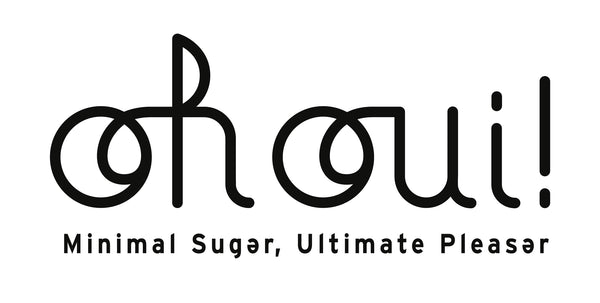When watching your blood sugar level or simply your figure, traditional refined white sugar should be avoided. Indeed, traditional sugar has a glycemic index between 70 and 80 depending on the variety. It therefore has a strong impact on blood sugar levels and causes an insulin spike.
But if you want to make pastries at home, or simply add a sweet touch to your desserts, selecting the right sugar can become a real headache. At Oh Oui! we love coconut blossom sugar, which not only doesn't give too much taste (and no, it doesn't taste like coconut 🥥 !), but is very easy to use.
Where does coconut sugar come from?
Coconut sugar, and more specifically coconut blossom sugar, comes from the sap of the coconut blossoms of the Coco Nucifera tree, a coconut palm grown primarily in India, South America and the Pacific tropics. Each tree can produce up to 25kg of sap per day. This sap is extracted, then heated to obtain a thick syrup. Once dried, the mixture is crushed to obtain granulated sugar.
The properties of coconut blossom sugar
The glycemic index of coconut sugar is much lower than traditional sugar: with a GI of 35, it will bring a greedy touch without making the glycemia soar
Contrary to white sugar which will mainly bring empty calories, coconut sugar is full of vitamins and minerals, mainly polyphenols, potassium, zinc and iron! It contains many antioxidants as well as inulin, a soluble dietary fiber that is considered prebiotic because it stimulates the development of bacteria in the intestinal flora.
Be careful though, it is at the same level of calories as traditional sugar.
A sustainable sugar
According to the Food and Agriculture Organization of the United Nations (FAO), coconut blossom sugar is the most sustainable sugar.
Coconut trees do not require many resources, produce for many years and do not need to be uprooted like sugar beets or sugar cane. Coconut flowers grow back and are used to produce sugar, alcohol and its famous coconuts!
In comparison, a coconut tree will produce 50 to 75% more sugar per hectare than sugar cane! Be sure to buy it in kraft paper and with the mention fair trade.
And in the kitchen?
This sugar melts very quickly, so it will allow you to sweeten your hot drinks, yoghurt or lemonade easily. Being a granulated sugar, it has the same properties as classic sugar: it can caramelize when cooked, and bring crunch to your desserts (crumbles, shortbread, cookies).
Also, its slightly amber taste will give character to your creations! Thanks to its higher sweetening power than white sugar, half the indicated weight will be enough: replace 100g of white sugar by 50g of coconut sugar.
Find our cookie recipe with coconut sugar here : Low glycemic index cookie recipe (ohoui.com), and download our e-book of 18 low glycemic index recipes!









